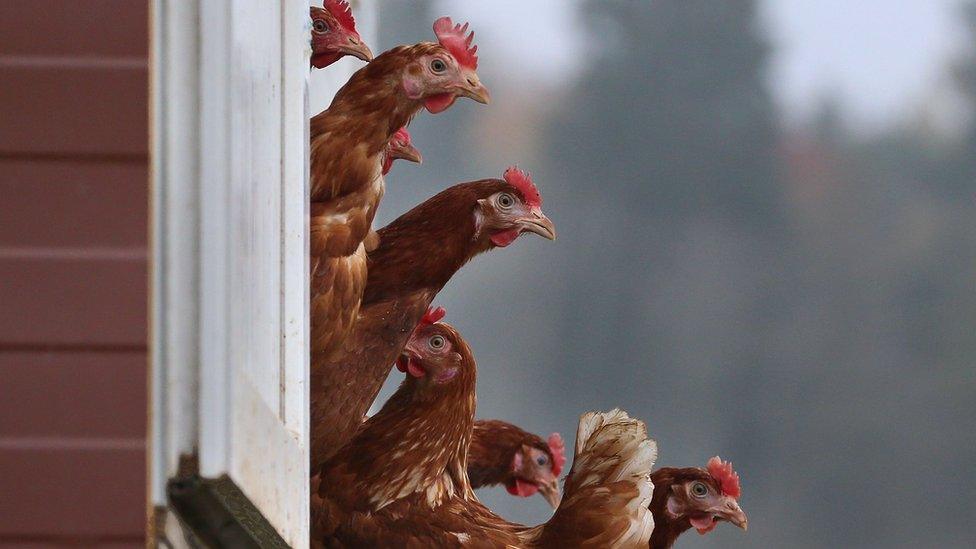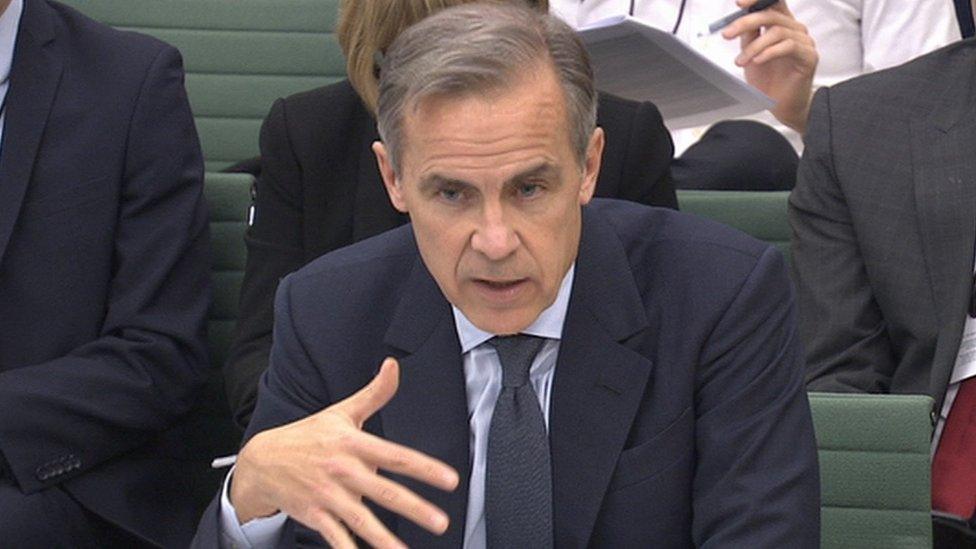Brexit questions: Poultry edition
- Published

Why did the chicken cross the Channel? Well, it's slightly complicated.
We've heard a lot about food imports in the discussion about the potential fallout from a no-deal Brexit. The risk is that disruption at borders, and particularly on the crucial Dover-Calais route, could mean shortages of fresh produce brought in from Europe.
But there's been less talk about disruption to our exports - and the knock-on effect that can have here at home.
With the clock ticking down, and the politicians seemingly determined to play a game of chicken, the prospect of leaving the EU without a deal in place next March looms ever larger.
Of course, some dismiss the idea of disruption at ports and gridlocked roads of lorries as bird-brained scaremongering. But the government certainly seems to be taking the prospect seriously, external.
And the humble chicken is a good demonstration of how complex the fallout could be.
It could push up the price we pay for chicken. Counter-intuitively, it could also result in the need to dispose of a build-up of chicken meat that can't be exported.
Poultry is the most consumed meat in the country, external, and the bulk of that is chicken. The UK produces about 60% of the chicken it consumes - or to put it another way, we are about 60% self-sufficient.
'Carcass balance'
So the worry, you'd think, would be that the other 40% gets stuck at borders - because the majority of our chicken imports come from the EU.
But it isn't that simple.
And that's because of the delightfully-named "carcass balance".
UK consumers prefer white breast meat, rather than the dark meat on wings, legs and thighs. So UK producers send their breast meat to UK supermarkets and export dark meat to avoid waste and maximise revenue.
The sector's bottom line relies on finding a market for the parts of the bird that aren't to UK tastes - and about 70% of those dark meat exports go to the EU.
Conversely, the UK's chicken imports (fresh and frozen) are predominantly breast meat.
If roads and ports are in chaos, then that presents several problems. The UK might find itself short of chicken breasts, pushing prices up.
But the inability to export dark meat would hit domestic producers' finances, leading to price rises on the white meat they can sell.
Taste changing?
There are other potential questions here.
What would happen to the dark meat that can't be sold? With cold storage already reportedly full, external, there might be little capacity to store excess supply.
And, for welfare reasons, chickens can't simply be allowed to continue to grow - a chicken must be slaughtered after about 38 days.
If that meat can't make it to its usual customers overseas it might need to be disposed of, raising questions over the amount of incineration capacity available to handle the carcasses.
"There isn't the capacity," said one poultry expert. "We've never contemplated being in that situation....you can't run the system out of balance, environmentally or financially."
To be clear, this is an extreme scenario. But it's one, said another industry source, that has been considered by government planners as part of scoping out how a no-deal exit might hit our food industry.
A silver lining, one chicken fan mused hopefully, could be that more expensive chicken breasts might mean a shift in British tastes to embrace the dark meat cuts - a longer-term boon for domestic producers.
Sounds like poultry compensation though, you could say.
You can watch Newsnight on BBC 2 weekdays 22:30 or on iPlayer. Subscribe to the programme on YouTube, external or follow them on Twitter, external.
- Published4 December 2018

- Published16 October 2018
- Published30 December 2020

